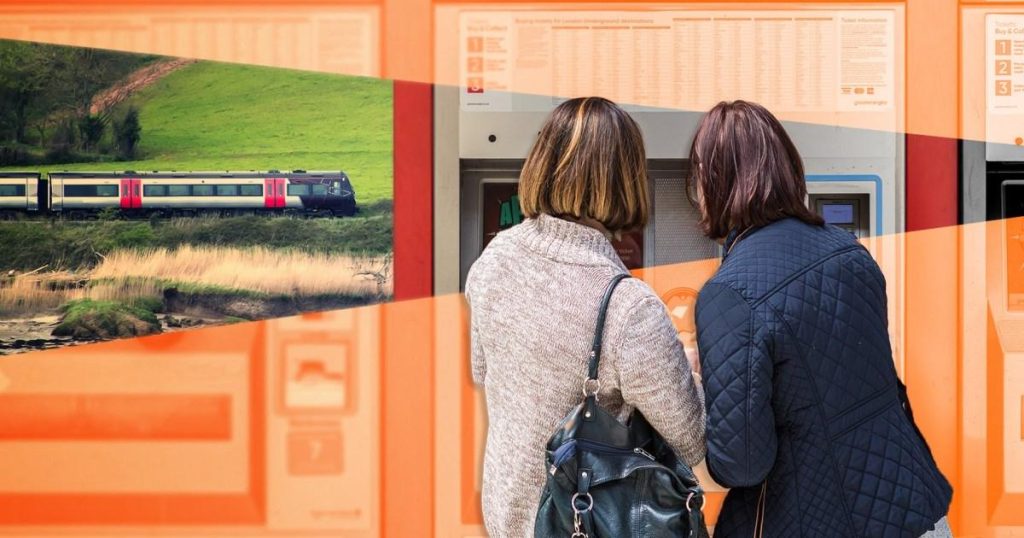The UK’s railway ticketing system is poised for a significant transformation, promising a more streamlined and transparent experience for passengers. The government has unveiled plans for a centralized website and app, consolidating the current fragmented market of multiple retailers and operator-specific platforms. This new platform will serve as a one-stop shop for all train tickets, simplifying the often confusing and time-consuming process of finding the best fare. This initiative echoes previous attempts at ticketing reform, notably a proposal in 2021 that was later shelved due to concerns about the private sector’s role. The current plan, however, emphasizes a collaborative approach, with the government pledging to work closely with private companies to ensure a fair and competitive market. This new direction signals a renewed commitment to modernizing the UK’s rail ticketing system, addressing long-standing passenger frustrations and paving the way for a more user-friendly travel experience.
The proposed system aims to eliminate the current complexities of navigating various websites and apps to compare prices and purchase tickets. Passengers currently face a bewildering array of options, including third-party retailers like Trainline and National Rail, as well as individual train operator websites. Each platform may have different booking fees, special offers, and restrictions, making it challenging to secure the most cost-effective fare. Furthermore, the unregulated pricing of certain ticket types, such as first-class and advance purchase, adds to the complexity. The new centralized platform will bring all these options under one roof, providing a single point of access for all ticket types and simplifying the comparison process. This unified approach promises to save passengers time and effort, while also promoting transparency and potentially driving down costs through increased competition.
The implementation of this new system is tied to the broader Great British Railways initiative, a comprehensive overhaul of the UK’s rail network. This ambitious project aims to consolidate various aspects of the rail industry under a single public body, creating a more integrated and efficient system. The launch of the new ticketing platform is expected to follow the establishment of Great British Railways, which is projected for late 2026 at the earliest. This timeframe allows for careful planning and development, ensuring a smooth transition and a robust, user-friendly platform. The government’s commitment to involving the private sector throughout the process seeks to leverage industry expertise and foster innovation within the new system.
While the overall vision for the new ticketing platform is clear, specific details regarding its functionality and integration with the private sector are yet to be finalized. The government has emphasized its commitment to creating a “fair and competitive market,” suggesting that private retailers will continue to play a role. The exact nature of this collaboration and how it will ensure consumer protection and prevent monopolistic practices remains to be seen. The government has pledged to work closely with industry stakeholders to develop a robust framework that balances public benefit with private sector involvement. This collaborative approach aims to create a system that is both efficient and responsive to market forces.
The announcement of these plans has already generated significant reaction within the rail industry. Trainline, a major online ticket retailer, saw its share price decline following the news, reflecting market uncertainty about the potential impact of a centralized platform. However, Trainline’s CEO expressed support for the government’s commitment to a competitive retail market, highlighting the importance of innovation and value for rail users. This cautious optimism reflects the broader industry sentiment, acknowledging the potential benefits of a streamlined system while also recognizing the need for continued private sector involvement. The success of this new initiative will depend on striking a balance between public control and private innovation.
The government’s renewed focus on simplifying train ticketing comes amidst ongoing concerns about pricing transparency and consumer protection. Recent investigations by the Office of Rail and Road (ORR) revealed instances of “drip pricing” by several ticket retailers, where hidden fees were added to advertised prices. These practices underscore the need for greater transparency and regulation within the ticketing market, ensuring that passengers are fully informed about the costs involved. The new centralized platform has the potential to address these concerns by providing a clear and consistent presentation of fares, making it easier for passengers to compare prices and avoid hidden charges. This focus on transparency and consumer protection will be crucial for building trust in the new system and ensuring its widespread adoption.


